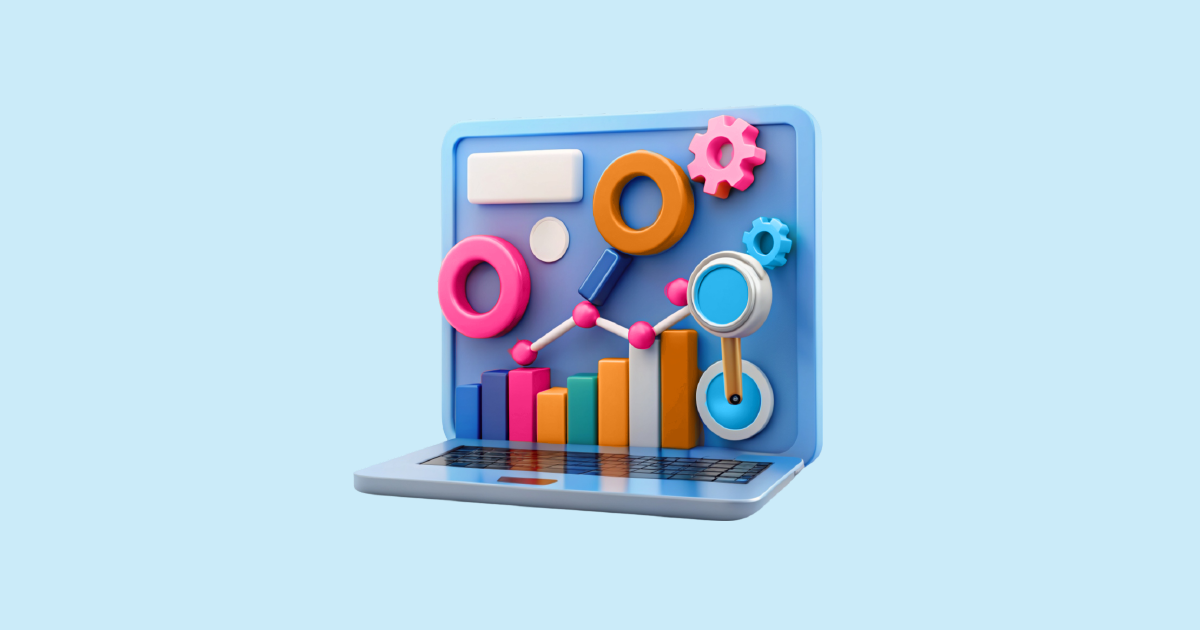In today’s digital age, social media has become an indispensable tool for businesses and individuals alike to connect with their audience, promote their products or services, and build their brand presence. However, merely having a social media presence is not enough; understanding how your content performs and resonates with your audience is crucial. This is where track social media analytics comes into play.
Track Social Media Analytics: Maximize Your Impact

1. What are Social Media Analytics?
Social media analytics involves tracking, analyzing, and interpreting data from various social media platforms to gauge the effectiveness of your social media efforts. These analytics provide insights into how your content is performing, who your audience is, and what strategies are working best to achieve your goals.
2. Importance of Social Media Analytics
Social media analytics is essential for several reasons. Firstly, it helps you understand your audience better by providing insights into their demographics, interests, and behavior. This information enables you to tailor your content to better resonate with your audience, ultimately driving engagement and conversions.
Secondly, social media analytics allows you to track the performance of your content in real-time. By monitoring metrics such as likes, shares, comments, and click-through rates, you can assess the effectiveness of your social media campaigns and make adjustments as needed to optimize results.
3. Key Metrics Tracked in Social Media Analytics
Some of the key metrics tracked in social media analytics include:
- Reach: The number of people who have seen your content.
- Engagement: The level of interaction your content receives, including likes, comments, and shares.
- Impressions: The total number of times your content has been displayed on users’ screens.
- Click-through rate (CTR): The percentage of people who clicked on a link in your post.
- Conversion rate: The percentage of users who took a desired action, such as making a purchase or signing up for a newsletter, after interacting with your content.
By tracking these metrics, you can gain valuable insights into the effectiveness of your social media efforts and make data-driven decisions to improve your overall strategy.
Tracking Social Media Analytics Tools
To effectively track and analyze social media analytics, there are several tools available in the market. These tools range from free options provided by social media platforms themselves to more comprehensive paid solutions offered by third-party vendors.
Overview of Social Media Analytics Tools
Social media analytics tools vary in terms of features, capabilities, and pricing. Some popular options include:
- Google Analytics: Provides insights into website traffic, including social media referrals and conversions.
- Facebook Insights: Offers analytics specific to Facebook pages, such as reach, engagement, and demographics.
- Hootsuite: A social media management platform that includes built-in analytics for tracking performance across multiple social networks.
- Sprout Social: Offers comprehensive analytics and reporting features, including audience demographics, engagement metrics, and campaign performance.
Popular Social Media Analytics Tools
While there are many social media analytics tools available, some of the most popular ones include:
- Buffer: Provides analytics for tracking post performance, engagement, and audience growth across various social media platforms.
- SEMrush: Offers social media analytics as part of its broader suite of digital marketing tools, including competitor analysis and keyword research.
- AIM Insights: A social listening and analytics platform that helps businesses track brand mentions, sentiment, and trends across social media channels.
- Mention: Monitors social media mentions of your brand or keywords and provides insights into sentiment, reach, and engagement.
Features to Look for in a Social Media Analytics Tool
When choosing a social media analytics tool, it’s essential to consider the features that are most important to your business needs. Some key features to look for include:
- Real-time reporting: Provides up-to-date insights into social media performance.
- Customizable dashboards: Allows you to customize reports and metrics based on your specific goals and KPIs.
- Competitive analysis: Enables you to benchmark your performance against competitors and identify opportunities for improvement.
- Integration with other tools: Seamless integration with other marketing tools, such as CRM systems and email marketing platforms, for a holistic view of your marketing efforts.
Interpreting Social Media Analytics Data
Once you have access to social media analytics data, it’s essential to know how to interpret and analyze it effectively.
1. Analyzing Engagement Metrics
Engagement metrics, such as likes, comments, and shares, are indicators of how well your content is resonating with your audience. High levels of engagement suggest that your content is compelling and valuable to your audience, while low engagement may indicate that adjustments are needed to improve your content strategy.
2. Understanding Audience Insights
Audience insights provide valuable demographic information about your followers, including their age, gender, location, and interests. By understanding who your audience is, you can tailor your content to better meet their needs and preferences, leading to increased engagement and loyalty.
3. Making Informed Decisions Based on Analytics
Ultimately, the goal of social media analytics is to enable you to make informed decisions about your social media strategy. By analyzing data trends and performance metrics, you can identify what’s working well and what areas need improvement, allowing you to refine your approach and achieve better results over time.
Best Practices for Social Media Analytics
To make the most of social media analytics, it’s essential to follow some best practices:
1. Setting Clear Goals
Before diving into social media analytics, define clear, measurable goals for your social media strategy. Whether it’s increasing brand awareness, driving website traffic, or generating leads, having specific objectives will guide your analytics efforts and help you track progress toward your goals.
2. Consistent Monitoring and Analysis
Regularly monitor and analyze your social media analytics to track performance trends over time. Set aside dedicated time to review your analytics data, identify patterns or anomalies, and make data-driven decisions to optimize your social media strategy accordingly.
3. Adjusting Strategies Based on Insights
Use social media analytics insights to refine and adapt your social media strategy as needed. If certain types of content are performing well, consider creating more of that content. Conversely, if certain strategies are not yielding the desired results, be open to adjusting your approach and trying new tactics based on analytics insights.
Conclusion
In conclusion, social media analytics plays a crucial role in helping businesses understand their audience, track the performance of their social media efforts, and make informed decisions to optimize their strategies. By leveraging the right tools and analyzing key metrics, businesses can unlock valuable insights that drive engagement, conversions, and overall success on social media platforms.
Ready to take your social media strategy to the next level? Request a demo from AIM Technologies today and discover how our advanced analytics solutions can empower your business to thrive in the digital landscape.
FAQs
What are social media analytics?
- Social media analytics involves tracking, analyzing, and interpreting data from various social media platforms to gauge the effectiveness of your social media efforts.
Why are social media analytics important?
- Social media analytics is important because it provides insights into how your content is performing, who your audience is, and what strategies are working best to achieve your goals.
What metrics are tracked in social media analytics?
- Some key metrics tracked in social media analytics include reach, engagement, impressions, click-through rate (CTR), and conversion rate.
What are some popular social media analytics tools?
- Some popular social media analytics tools include Google Analytics, Facebook Insights, Hootsuite, and AIM Insights.
How can businesses use social media analytics to improve their strategies?
- Businesses can use social media analytics to set clear goals, monitor performance, analyze data trends, and adjust strategies based on insights to optimize their social media efforts for better results.




